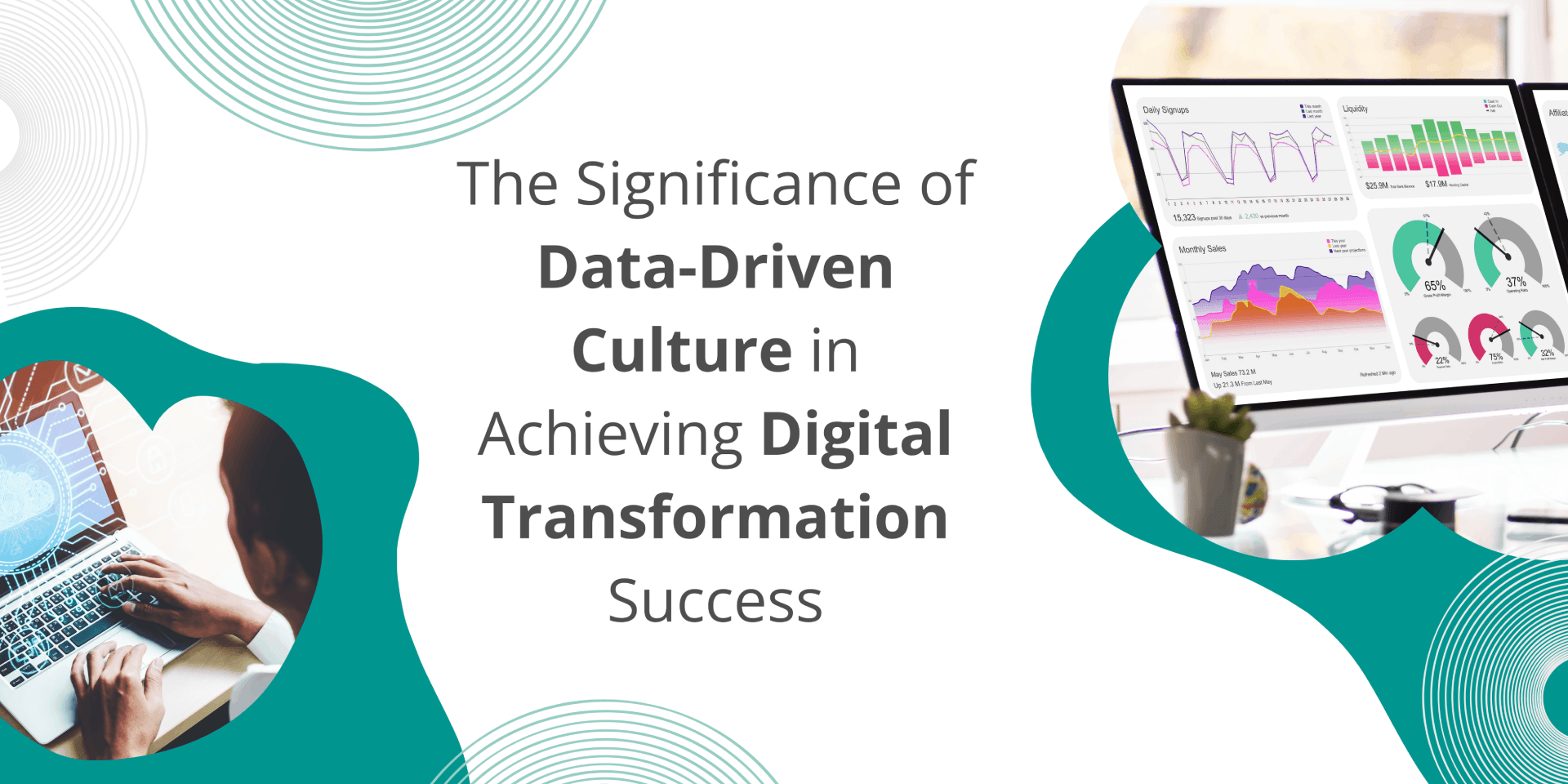In today’s rapidly evolving business landscape, the role of Chief Information Officers (CIOs) has transcended traditional IT management. As we embrace the digital era, CIOs play a crucial role in guiding organisations through data-driven transformations. Let’s delve into the intricacies of this leadership journey and explore the profound impact CIOs have on reshaping data quality.
It’s no surprise that leaders across industries prioritise digital transformation initiatives. They understand the importance of reinventing their businesses for the digital age to drive revenue growth, reduce operating costs, stay competitive, and meet evolving customer expectations. The COVID-19 pandemic has further accelerated these efforts, with a staggering 87% of business leaders, considering digital transformation a top priority.

However, despite good intentions, the failure rate for digital transformation remains alarmingly high, averaging around 70%. This significant gap between intentions and outcomes highlights the need for a fundamental shift in approach. While various factors contribute to these failures, it’s evident that many initiatives lack a foundation: a positive data-driven culture.
Given the central role of data in digital initiatives, it’s intuitive that effective data management becomes an integral component of any transformation effort. Data and digital are inseparable partners in achieving success. Unfortunately, data-related challenges frequently hinder progress in digital projects. Compounding this issue is the realisation that the data skills possessed by most organisations today do not align with the advanced qualitative and quantitative aspects required for a truly data-driven culture.
To improve digital transformation outcomes, recognise the vast difference between merely managing data and using data as a strategic asset to drive organisational success. Bridging this gap is one of the critical initial steps towards achieving better results.
Creating a vision for achieving data excellence
A visionary CIO is more than a mere technologist; they are the architects of change. In the realm of data-driven transformation, the ability to envision a future where data becomes a strategic asset is of utmost importance.
It transcends the mere implementation of cutting-edge technology; it entails a deep understanding of the intricate web of interconnected systems that comprise the backbone of information technology.
Continuous process improvement: The foundation of transformation
Continuous Process Improvement (CPI) serves as the vital core of any triumphant data-driven endeavor.
CIOs bear the responsibility of guiding their teams in nurturing a culture that incessantly strives for improvement, guaranteeing that processes are not only efficient but also adaptable to the ever-changing data landscape.
It extends beyond mere issue resolution; it revolves around establishing an atmosphere where perpetual enhancement becomes ingrained in the very fabric of the organisation.


Insights on data quality: Navigating through the maze
Data quality serves as the compass that steers organisations toward their objectives in the expansive landscape of data. CIOs must possess the skills to navigate the complexities of data quality, guaranteeing accuracy, consistency, and reliability of information.
By investing in robust data quality frameworks, CIOs establish a solid foundation for informed decision-making, fostering trust in data-driven insights throughout the organisation.
Striking the right balance: Innovating while managing risk
In the data-driven era, CIOs take on the role of leaders, skillfully balancing innovation and risk mitigation. Embracing emerging technologies is vital, but protecting sensitive banking information is equally important.
Achieving the right balance requires a strategic approach, using innovation to drive business outcomes while effectively managing the risks of data breaches and cybersecurity threats.
Revitalising data quality: A captivating pursuit
The journey of reshaping data quality is truly inspiring and transformative. As the stewards of this transformation, CIOs have a unique opportunity to inspire their teams and stakeholders. By fostering a culture that views data quality as an opportunity for growth rather than a challenge, CIOs empower their organisations to thrive in the data-driven landscape.
This deliberate effort requires strong executive commitment and leadership, along with a comprehensive assessment of data strengths and gaps. Fostering a data-driven culture leads to better outcomes, empowers employees, and sets the stage for successful digital transformation.
To convince the chief information officer (CIO) of the potential of data and emerging technologies like artificial intelligence (AI), a large-scale transformation is necessary, requiring the collective focus of the entire organisation.
With an alarming failure rate of 60% to 80% for AI projects, cultural obstacles emerged as significant hurdles. Instances where “gut feelings” took precedence over data and underutilised tools, underscoring the need for both technological and human transformation.

Key essential points that CIO’s should take into account:
- When considering data and AI projects think about their impact and feasibility. Prioritise projects that have a high impact and are easy to implement, as they can propel organisational momentum. However, don’t overlook projects with high impact but low feasibility, as they can be fascinating and compel you to consider the skills and infrastructure that form a solid foundation for the long-term.
- Embrace a privacy-centric approach from the outset, integrating governance seamlessly into AI endeavors. Too often, it is treated as an afterthought rather than a fundamental component.
- To avoid the constant reset, steer clear of the arduous and time-consuming development process experienced by data scientists. Often, they find themselves immersed in ad hoc tasks that deviate from their core expertise, such as constructing data pipelines. This is where AI platforms come in as catalysts, democratising data science and empowering a broader range of professionals to leverage its potential.
- Embrace rapid iteration through thorough experimentation. Start with a hypothesis-driven approach that evolves alongside your tools, progressing into more refined A/B testing that can be adjusted in real-time. Leveraging experimentation platforms facilitates modeling the return on investment for significant initiatives.
- Fostering trust is invaluable. For example at a recent Tech Icon event, one participant proactively engaged her call centre employees to identify their most disliked task. She then presented a compelling case for automating it, alleviating concerns about potential layoffs. In another instance, someone enhanced tools by incorporating process descriptions that illustrate the transformation of data into valuable insights. By prioritising transparency and empowerment, these actions contributed to building a culture of trust and collaboration.
- Ensuring data integrity requires holding lines of business accountable. Control data at its point of origination, necessitating an updated operating model. A participant in one organisation exemplified this by establishing data domains and assigning owners. This way, anyone encountering issues could file a claim, with the contact person readily identifiable. Accountability becomes increasingly important as organisations delve further into AI and data-driven models.
- Gaining a comprehensive understanding of your vendors is important. The potential impact of unintended consequences from AI, such as improper data tagging, can be significant and reverberate throughout your entire value-chain. Before implementing an AI product or service, it is paramount to grasp the underlying mechanisms by which it operates.
Need some help scoping out your next move? We’d love to hear from you.




